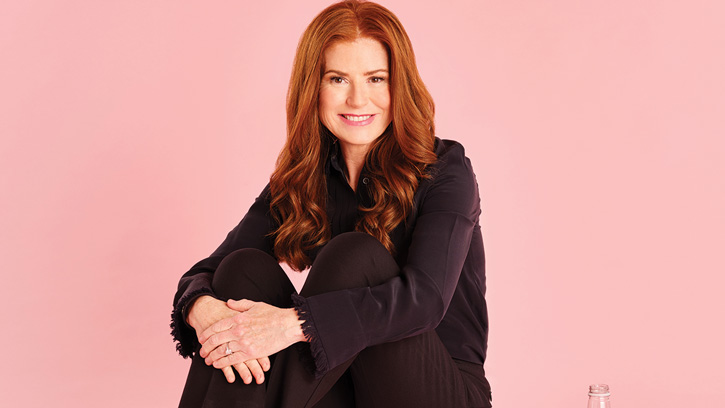Kara Goldin Has Not a Hint of Doubt
STARTUPS & INNOVATORS
Kara Goldin and her company, hint inc., have gotten jolted and knocked down a few times. But part of being an inveterate entrepreneur is that she got up each and every time. In fact, she got up so many times that the founder and CEO of the leading brand of flavored still waters is releasing a book about her career and adventures called Undaunted: Overcoming Doubts & Doubters.
“If you go and try and do and see what happens, you’ll be surprised how much good ultimately comes out of that,” says Goldin, whose $150 million-plus brand is based in San Francisco. “And when it comes to ‘failure,’ I’m a huge believer that if we didn’t know that word, what would we all do?”
For Goldin, stumbles have included having to fund growth of her company from selling her house; seeing Starbucks, her company’s first and biggest customer, yank its distribution deal from hint inc. several years ago; and caroming around inside COVID-19 for a while until she grasped the pandemic as an opportunity to expand the hint brand’s sales and footprint.
A developer of AOL’s e-commerce business, Goldin founded hint inc. in 2005 as a pioneer in the new segment of still and unsweetened bottled waters flavored with fruit oils and other essences. Coca-Cola, PepsiCo, and other beverage giants had tried to figure out this segment but couldn’t, even though the titans later would end up making big plays in another category whose growth took them by surprise, sparkling bottled waters.
Goldin steadily has built hint inc. over the past several years by adding new flavors of still water, a line of its own sparkling waters, and distribution that has grown from early retailers including Whole Foods Markets, Kroger, and Target to include Walmart, its Sam’s Club warehouse division, and Aldi supermarkets this year.
Here are some ways that Goldin has remained “undaunted” that may provide guidance and inspiration for other entrepreneurs.
• Act fast when opportunity glimmers. Goldin thought hint inc. was on easy street when Starbucks began selling its products in its coolers. Then the coffeehouse giant booted the brand out in 2014 in favor of some of its own products, and suddenly Goldin was stuck with hundreds of cases of blackberry-flavored hint water.
But at the same time, Amazon wanted to list hint water early in the e-retailing giant’s expansion into groceries. Goldin insisted that Amazon try selling lots of blackberry hint water at first, and that sure enough happened. It opened the door for Goldin to exploit a direct-to-consumer channel that now accounts for more than half of the brand’s sales, including on hint’s own drinkhint.com website.
Similarly, this year Goldin rapidly ramped up her focus on e-commerce after COVID-19 decimated foodservice sales that had accounted for about 15% of revenues. “We made some really fast bets early on by reallocating budgets,” she said. “We also began sending our event sales teams into merchandising in stores.”
And when Costco came calling to hint inc. during the pandemic because the brand’s supply chain is completely U.S.-based while some of Costco’s bottled water suppliers had foreign sourcing entanglements, Goldin jumped at the chance to add another huge and prestigious retail account.
• Follow your heart to brand extensions. Brand architecture experts might tell Goldin she was crazy to introduce far-flung extensions of hint water into all-natural sunscreens and deodorants, but as someone who’d had a brush with skin cancer, she did it anyway.
“They’re tiny in terms of revenues, but they show our consumers that this is a brand that gets me,” Goldin explained. “They think of us as a brand that helps them live better.”
• Never get too proud. Early on in the COVID-19 pandemic, Goldin decided to go where she wouldn’t command her sales team to go. So she slipped into the stockroom of a local Target store and assured the startled grocery manager that she would personally make sure his empty shelves would soon bow again with dozens of cases of hint water.
“I wanted to show my executive team that this is what should be done,” she says. “They appreciated that. And then they were like, ‘If Kara is doing that, maybe we should be doing that, too.’”


